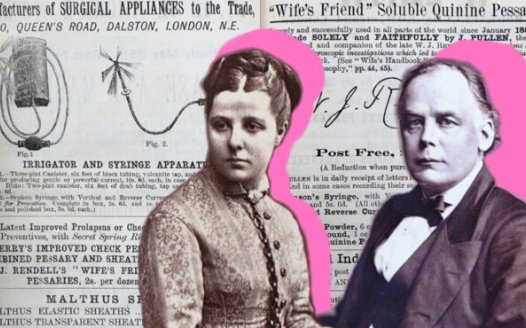NSS: Protect patients' rights from religious exemptions
Posted: Tue, 7th Mar 2017
The National Secular Society (NSS) has responded positively to a consultation on new guidelines for pharmacists which prioritises patients' healthcare needs over pharmacy professionals' religious views.
The new guidelines rejected an earlier approach by the General Pharmaceutical Council (GPhC) which called for "balance" between a patient's medical needs and a pharmacist's religious beliefs and instead stress that the needs of then pharmacy user must be paramount.
While reasonable steps can be taken to accommodate religious or other objections to providing certain forms of medication including emergency contraceptives, the secularist response to the consultation argued that the onus must be on pharmacies to ensure service users are put first and are not turned away.
It may be acceptable for an individual pharmacist to refuse to provide a prescription or 'over-the-counter' medication, but the pharmacy must still fulfil the request and was not acceptable for pharmacies to turn people away to have the request fulfilled elsewhere. In some instances there may not be other pharmacies nearby.
The NSS response, drafted with the assistance of the Secular Medical Forum (SMF), commended the GPhC for offering "clear" guidance on conflicts between religion and patient's needs. The secularist response said the guidance was "forward-thinking and robust" in taking steps to "safeguard pharmacy users from the adverse consequences of the unrestricted expression of the personal beliefs of pharmacy professionals."
The NSS response drew attention to one example where a patient was refused emergency contraception and was not offered a referral. It warned that under the current rules, due to be replaced by the new guidance, some pharmacists who do put their own beliefs first "actively seek to justify their refusal" to comply with the patient's wishes.
In 2016 Christians in Pharmacy said that "the strongly held moral convictions of the pharmacy practitioner may prevent them, in good conscience, from actively recommending another source of supply. This could probably be dealt with by allowing the concerned pharmacist to point out that other pharmacies/pharmacists would be willing to dispense without themselves making a direct referral."
This suggestion, "that there should be an opt-in for pharmacists rather than an obligation to provide services" is "deeply troubling" and should be rejected, the secularist response argued. Such an approach would be a retrograde move away from "patient-centred care".
The consultation is now closed. Stephen Evans, the campaigns director of the National Secular Society: "This is a welcome opportunity to ensure that patient's rights are protected and put first."
Religious dogma shouldn't interfere with your healthcare
We campaign to protect patients from the harm caused by the imposition on them of other people's religious values, and advocate for a secular approach to current healthcare issues. Please consider a donation, from as little as £1 a month, to help support our work in this area.
P.S. make sure to check out the related campaigns below.







